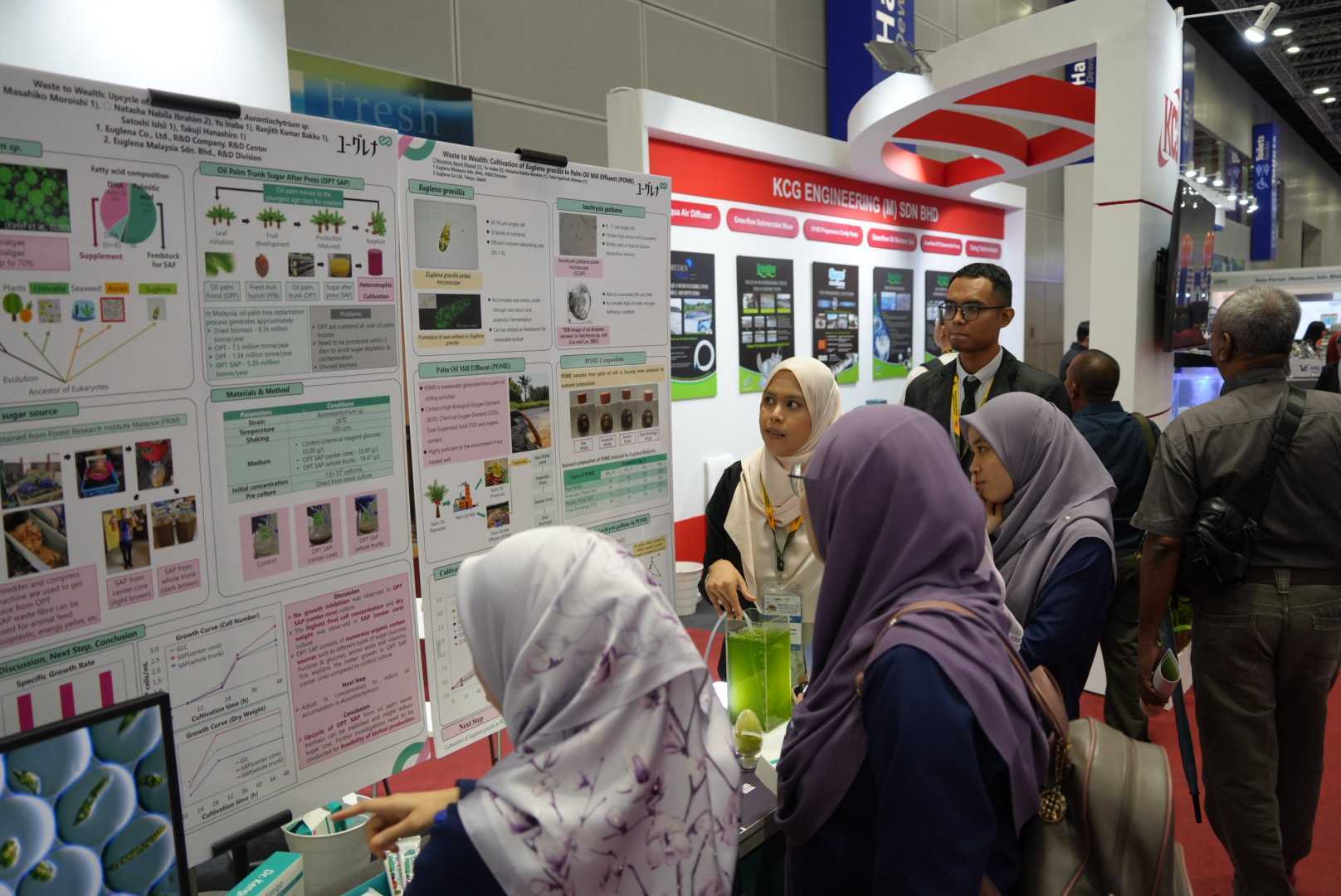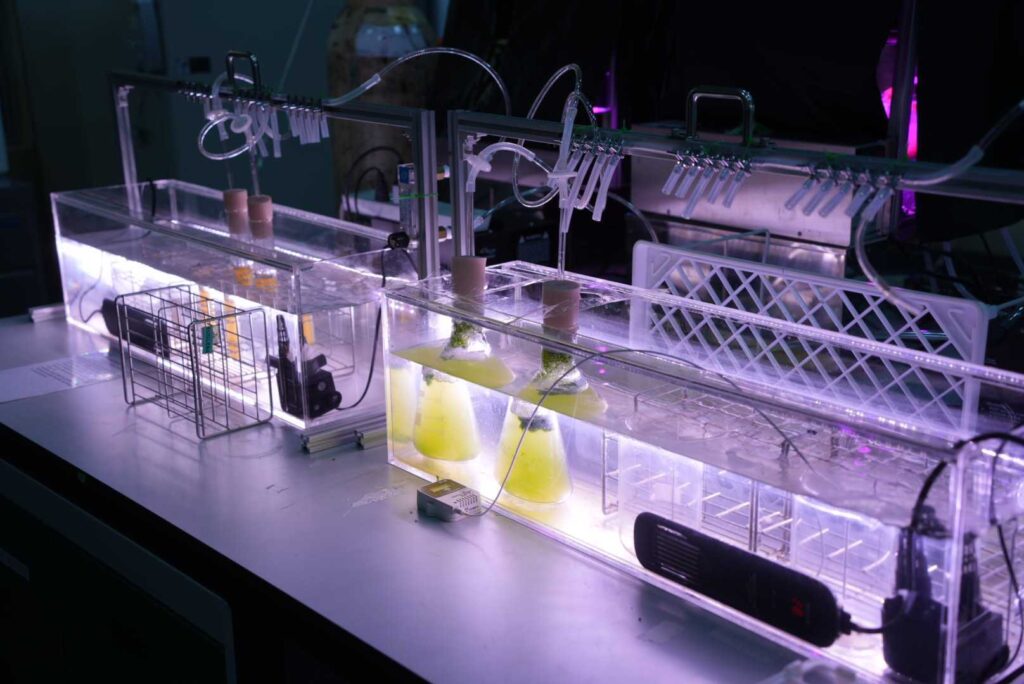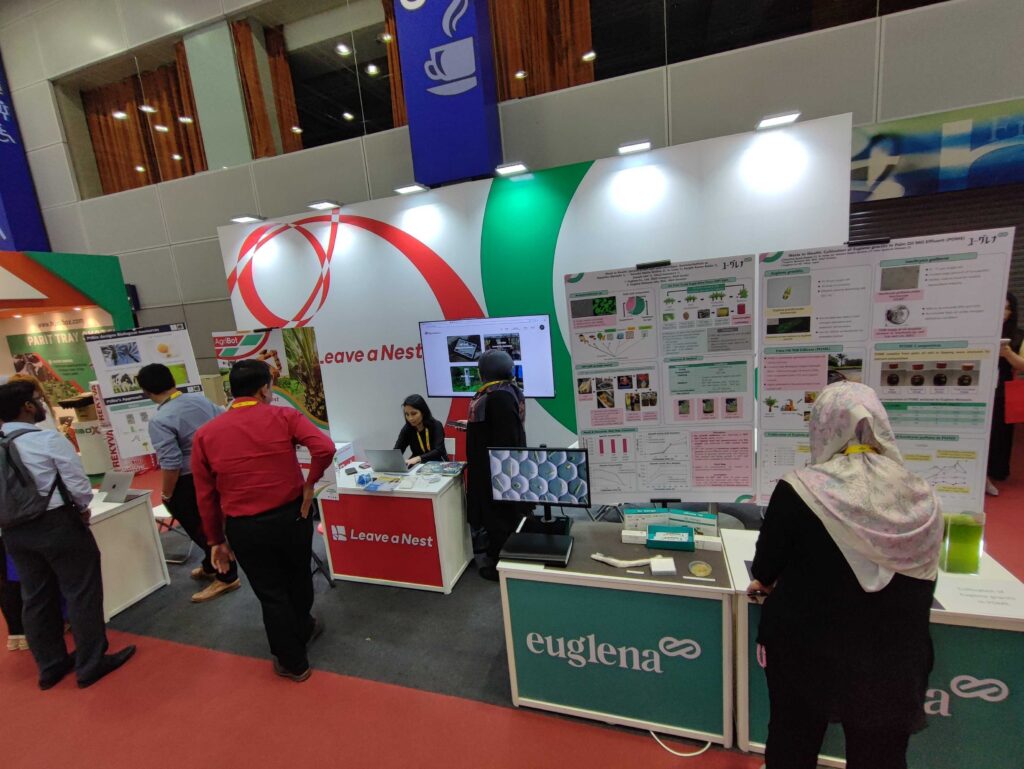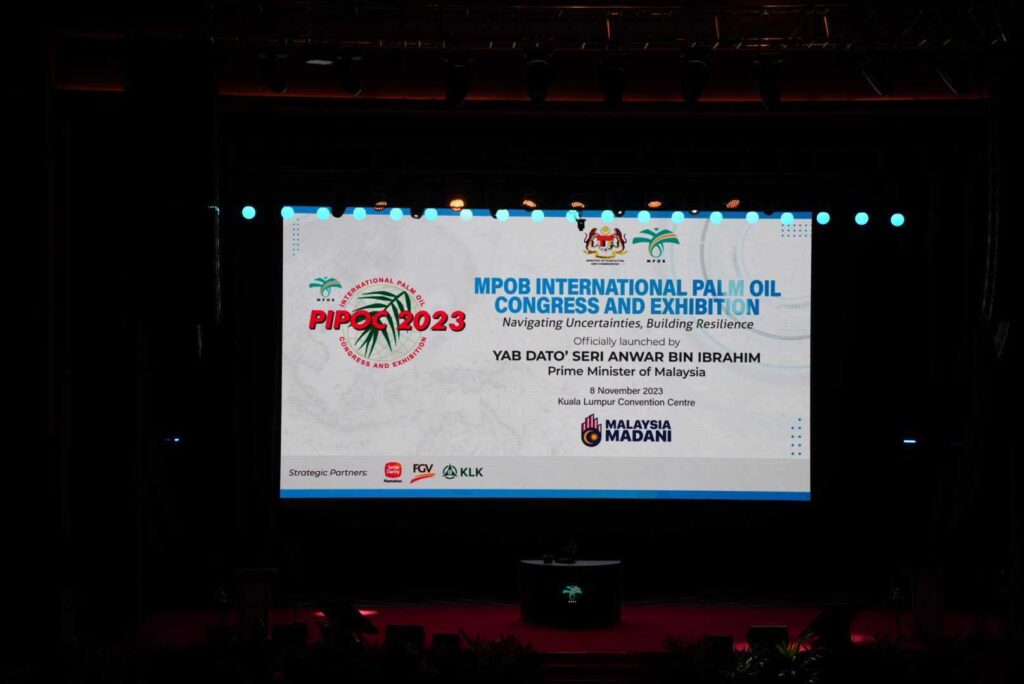
Euglena Co. at PIPOC2023 : Pioneering Algal Tech for Sustainability
Euglena Co., Ltd. a Tokyo-based biotech firm, extended its innovative reach to the PIPOC 2023, held from November 7-9 at the Kuala Lumpur Convention Centre. PIPOC, a premier palm oil industry event, gathered over 2,000 participants and featured 400 exhibitions, punctuated by four concurrent conferences. Euglena Co. stood out with its commitment to sustainability, showcasing a novel cultivation method for Aurantiochytrium, an alga known for its high lipid content and potential in biofuel production.
Aurantiochytrium, distinct for its non-photosynthetic nature, carries significant promise due to its DHA-rich lipid profile, accounting for 20% of its cell weight. Euglena Co. has successfully scaled this alga's production from test tubes to large-scale production, overcoming challenges such as spray dryer adhesion during the drying process.

Furthering its green initiatives, Euglena Co. has collaborated with Chevron Lummus Global (CLG) and Applied Research Associates, Inc. (ARA) to produce renewable jet fuel from microalgae-derived lipids. This breakthrough fuel meets ASTM International D7566 Annex 6 standards, marking a significant milestone in renewable energy. Their Yokohama demonstration plant is at the forefront of Japan's "GREEN OIL JAPAN" vision, aiming to establish a robust supply chain for microalgae-based jet fuel by 2025.
At the PIPOC conference, Euglena Co. also introduced Dr. Kengo's meal replacement shakes, which are formulated with Euglena. These shakes contain 59 essential nutrients necessary for daily life, including a balance of vitamins, minerals, amino acids, and unsaturated fatty acids. Dr. Kengo shakes incorporate soy protein and oat powder to promote satiety and contain no artificial colors or preservatives. The benefits highlighted for these products include providing sustained energy, supporting overall health, aiding in digestion, improving immune function, and contributing to weight management.
Euglena Co. showcased its collaboration with Leave a Nest Malaysia by sharing a booth at the PIPOC conference. This partnership is a testament to their mutual commitment to advancing algal research and education. Since establishing the Nest-Bio Venture Lab with the Malaysia-Japan International Institute of Technology (MJIIT) and receiving support from Euglena Co., Leave a Nest Malaysia has worked to accelerate biomass production research, leveraging Malaysia's rich biodiversity and conducive environment for cultivating useful substances like lipids through photosynthesis. The collaboration between Euglena Co. and Leave a Nest Malaysia epitomizes a shared vision of using science and technology to contribute to global well-being, underscoring the innovative spirit that was on full display at their joint PIPOC exhibition.

Euglena Co.'s efforts exemplify a transformative approach to waste-to-energy projects, leveraging microalgae's potential to address waste byproducts from palm oil mills while contributing to the production of SAF. This aligns with global efforts to reduce aviation's carbon footprint and supports the transition to a circular economy.
Notes related to the November 8 speech by the Malaysian Prime Minister

- Economic Inequality and Welfare: The Prime Minister points out the economic disparity between successful and smaller companies, indicating a need to bridge this gap for societal welfare.
- Palm Oil's Health Benefits: He acknowledges studies showing palm oil's rich phytonutrient content and its potential in preventing non-communicable diseases.
- Global Food Security: With the world population projected to reach 10 billion by 2050, the Prime Minister emphasizes palm oil's critical role in global food security and Malaysia's reliable supply due to the crop's high yield and lifespan of 25-30 years.
- Sustainable Practices: The Malaysian food industry assures that palm oil is safely used, and the Prime Minister underscores ongoing efforts to present their case to the EU, along with Indonesia and Thailand, in light of the EU Deforestation Regulation (EUDR) set to take effect in January 2025.
- Collaboration with Other Nations: Malaysia, alongside Indonesia and now Thailand, is actively working to address concerns regarding palm oil production and its impact on deforestation, seeking recognition from the EU for their efforts to reduce carbon emissions and practice sustainable production.
- Innovation in Palm Oil Industry: Malaysia has pioneered many breakthroughs in the palm oil sector, from genomic research to innovations matching the Fourth Industrial Revolution, which include the development of intelligent management systems for plantation data management.
- Economic Importance of Palm Oil: Historically, Malaysia has viewed palm oil as a key economic driver, contributing significantly to its GDP and providing direct and indirect employment to a substantial portion of its population.
- Foreign Policy and Economic Interests: The Prime Minister's address also hints at the intertwining of Malaysia's economic interests, especially those concerning palm oil, with its foreign policy decisions and relations.
- Environmental Concerns and EU Relations: The EU's deforestation-free regulation impacts Malaysian palm oil, timber, cocoa, and rubber exports. The Prime Minister urges a balanced implementation that doesn't harm the livelihood of agricommodity producers, especially smallholders.
- Future Outlook: Despite challenges like climate change, the Prime Minister expresses optimism for the oil palm industry's future, citing technology and sustainable production as keys to overcoming these challenges.
